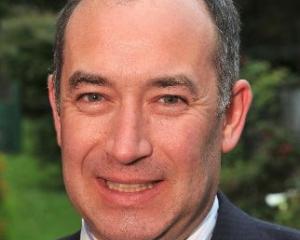
The Carisbrook Stadium Trust has requested a district plan change that would turn what is now industrial zoned land into campus and stadium zoned land.
The council's acting planning policy manager, Paul Freeland, has recommended the council "adopt'' the plan change, meaning it would accept the responsibility and costs of processing it.
Dunedin Ratepayers and Householders Association chairman Syd Adie contacted the Otago Daily Times yesterday, and said adopting the plan would add a cost to the council's spending on the stadium.
"It's another thing the trust can take out of the equation.''
Asked if that was correct, Cr Brown said he understood the cost of the plan change was within the trust's budget.
"It's not an extra cost to ratepayers. That's my view of it.''
Cr Brown's views were backed up by trust chief executive Darren Burden, who said the cost was included in the trust's budget.
He said he did not have access to the exact amount last night, but it was included in the design and construction budget.
The council has two possible options for the plan change, to either "adopt'' or "accept'' the change.
Asked what the difference was, Mr Freeland said a key difference was that an adopted plan change took effect from the date of public notification.
Asked to explain, he said if the trust or the University of Otago applied for resource consent, from that time a consent hearings committee could take into account the zoning change when considering an application, as well as the current district plan.
That would mean while the trust, for instance, would be applying to build a stadium in an industrial zone, the committee could take into account the change of zoning to a stadium zone, even though a final decision on zoning would not have been made.
That would allow the trust and university a better chance of getting consent.
If the council decided to accept, rather than adopt the plan change, the committee would consider the land an industrial zone until the process, and appeal period, was finished.
Public submissions would have an effect, though, as a hearings committee would have to take them into account when making a decision.
Mr Freeland said it was not possible to say what the cost of the plan change would be, but the major part of it could be the cost of legal counsel for any possible Environment Court appeal.






